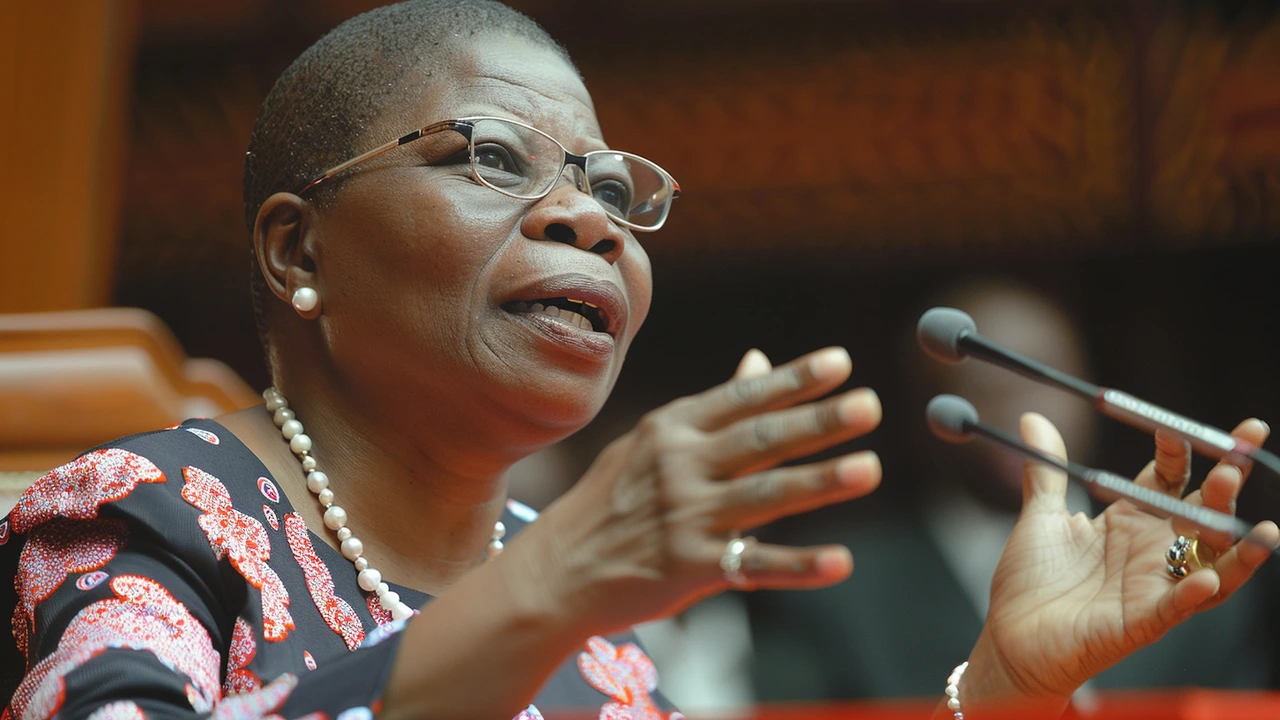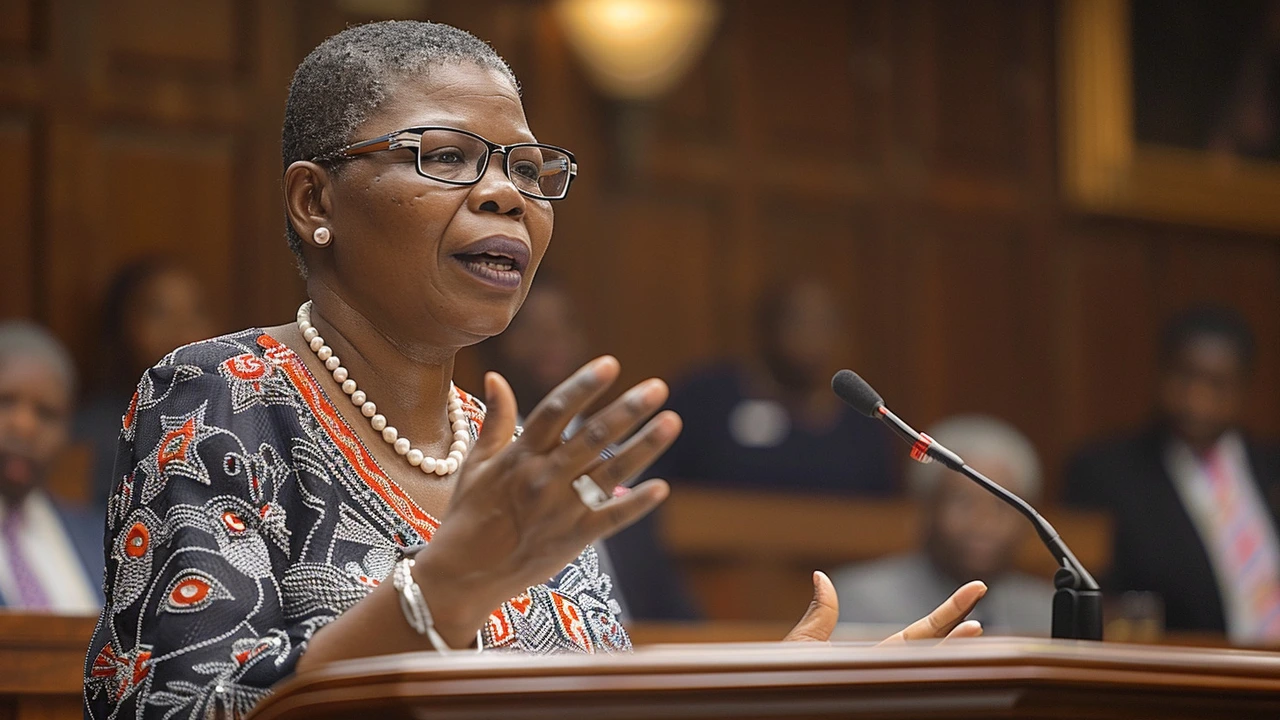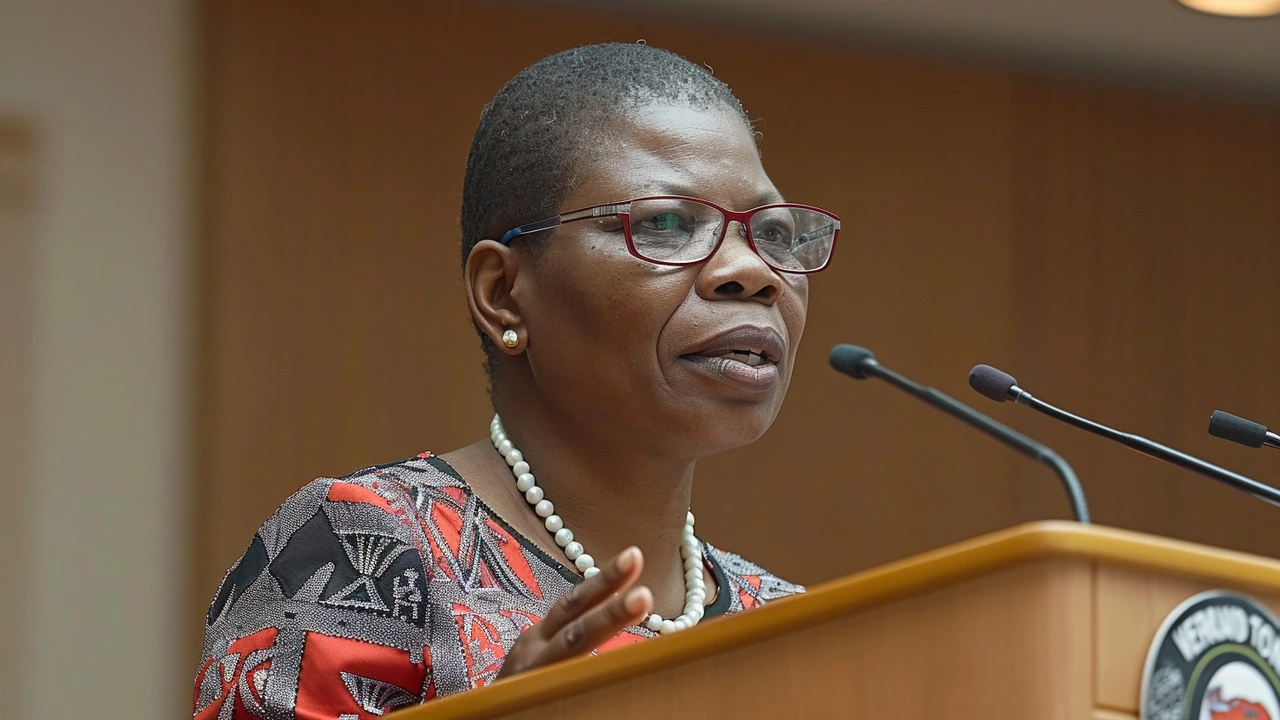
Oby Ezekwesili's Firm Stance on the National Anthem
In a passionate response to recent legislative actions, former Minister of Education, Oby Ezekwesili, has made it abundantly clear that she will not comply with the new national anthem signed into law by President Bola Tinubu. Ezekwesili, who is widely known for her outspoken nature and activism, took to her X handle to voice her dissent. Her main argument revolves around the principle of freedom of expression and the right to dissent against what she describes as an 'obnoxious law', which she believes goes against the moral compass of many Nigerians.
An Anthem in Contention
The contentious legislation in question, the National Anthem Bill 2024, saw a swift passage through both the Senate and the House of Representatives. It has created a pronounced stir within the Nigerian political landscape. The bill, spearheaded by its sponsor, Julius Ihonvbere, aimed to replace the current national anthem with 'Nigeria, We Hail Thee'. Ihonvbere’s rationale is grounded in the perceived necessity to bolster patriotism and nationalism among Nigerian citizens. However, this move has been met with substantial resistance and questions regarding its actual relevance and timing. Many Nigerians argue that the nation's pressing economic struggles should take precedence over symbolic changes like the national anthem.
Ezekwesili's Argument for Retaining the Old Anthem
Ezekwesili's vehement opposition is not just a stand against the new anthem but also a testament to her belief in the importance of voicing dissent. She has publicly committed to continuing singing the current national anthem, emphasizing its lyrics and the emotional and historical significance it holds for many Nigerians. To her, this is not merely an act of defiance but a principled stand for the collective conscience of the Nigerian people.

A Nation Divided
The introduction of the new anthem has ignited heated debates across various social and political circles in Nigeria. Analysts and commentators have weighed in on the issue, dissecting the implications of such a change amidst the country’s ongoing economic challenges. Critics argue that the national leadership should prioritize addressing more urgent issues, such as the economy, unemployment, and security, instead of focusing on changing national symbols. This sentiment is echoed by several lawmakers, including Ahmad Satomi, who openly challenged the necessity and relevance of the bill.
The Political Undercurrents
Political observers speculate that the new anthem might be President Tinubu's attempt to create a lasting legacy or to make a significant mark early in his tenure. However, this move might have inadvertently opened a Pandora's box of dissent and dissatisfaction among the populace. It has highlighted the larger issue of governance and the priorities of those in power, bringing into question the extent to which government initiatives align with the immediate needs and concerns of its citizens.
A Symbolic Gesture or a Misstep?
The mixed reactions from the public reflect the complex emotions surrounding the national symbols and the identity they represent. For many, the national anthem is not just a song but a symbol of their heritage and struggles. Any attempt to alter it can evoke strong reactions, as seen in Ezekwesili's defiance. This development poses a significant question: Are symbolic gestures like changing the national anthem a step forward in fostering national unity and pride, or are they misplaced priorities in times of economic hardship?

The Way Forward
As the debate continues to unfold, there is a clear need for dialogue and understanding among all stakeholders. The government must engage with its citizens and consider their perspectives seriously. Listening to voices like that of Oby Ezekwesili might not only help in maintaining social harmony but also in addressing the broader issues that plague the nation. Ensuring that policies and changes resonate with the people's needs and aspirations is crucial for sustainable governance.
Conclusion
In conclusion, the issue of the national anthem in Nigeria has transcended beyond a mere change of words. It has become a significant point of contention that encapsulates broader themes of governance, patriotism, and national identity. Oby Ezekwesili's defiance is a reflection of the deep-seated sentiments of many Nigerians who yearn for a responsive and responsible leadership. As the nation moves forward, it remains to be seen how this controversy will shape the political and social landscape of Nigeria.
16 Comments
Write a comment
More Articles

Delhi Airport Terminal 1 Roof Collapse: Govt Steps In to Avoid Ticket Price Surge Amid Massive Flight Cancellations
The Ministry of Civil Aviation has instructed airlines to halt any potential price hikes following a roof collapse at Delhi Airport Terminal 1. The tragic event led to one death, six injuries, and over 80 flight cancellations by Indigo alone. Heavy rains precipitated the collapse, significantly impacting domestic travel plans.

SpaceX Starlink Internet Price Adjustment Reflects Increased Demand in the US
SpaceX has raised the subscription cost of its Starlink satellite internet for specific U.S. customers due to a shift from 'excess' to 'limited capacity'. The move, which adjusts the fee from $90 to $120 starting June 10, demonstrates Starlink's resilience in the competitive market, despite some users canceling their subscriptions in protest.

Brighton vs Manchester United Live Score: Latest Updates and Team News for Premier League Clash
Manchester United eyes European football as they face Brighton in a Premier League clash. A win could secure European competition for United, who also have the FA Cup final against Manchester City. The match kicks off at 4 pm but won't be televised in the UK.
sunil kumar
May 29, 2024 AT 23:39From a philosophical lens, the anthem debate is more than a lyrical tussle; it is a crucible for national identity formation. One could argue that symbols function as recursive feedback loops within the collective psyche, shaping policy and praxis alike. The dialectic between tradition and innovation often manifests in these cultural battlegrounds, evoking both nostalgia and futurism. Hence, Ezekwesili's stand is not merely defiant, but a phenomenological assertion of lived experience.